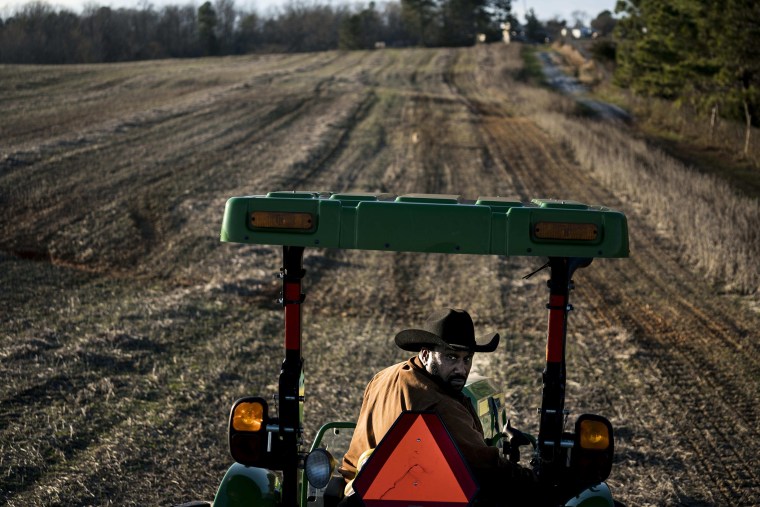Minority farmers are taking the federal government to court for watering down a $4 billion debt relief program aimed at helping the dwindling number of people of color who continue to work the country’s farmlands, according to a lawsuit filed last week.
The plaintiffs in the class-action lawsuit said the government went back on its word to Black and other minority farmers when the relief program, originally pushed through by Democrats in Congress, was reworked and broadened after white farmers balked.
“They broke their promise to Black farmers and other farmers of color,” John Boyd, a plaintiff and the president of the National Black Farmers Association, told NBC News on Wednesday just before he held a press conference on the matter.

The program, which was created by the American Rescue Plan of 2021, was intended to help minority farmers pay off Department of Agriculture loans and provide other forms of debt relief and aid to those racial and ethnic groups that have faced discrimination from the government in the past. It covered up to 120% of the debts of farmers who are members of groups that have historically been discriminated against based on their race or ethnicity.
The $4 billion was never delivered to Black farmers and other people of color, however.
For more than 18 months, the money has been held up in a court battle, as white farmers and others challenged the allotment they would not be able to access and claimed it was a violation of their constitutional rights.
The original program was eventually replaced in August with the passage of the Inflation Reduction Act of 2022.
The new legislation aims to circumvent white farmers’ grievances and create two new funds while nixing the initial relief program. The first fund would set aside more than $2 billion for farmers and others who faced discrimination prior to 2021. The second provides more than $3 billion for the Agriculture Department to pay or modify loans for farmers who are under considerable financial strain.
The new debt relief funds no longer prioritize Black and other farmers of color.
The plaintiffs say the changes constitute breaches of a contract and implied contracts set by the American Rescue Plan. They request damages to be paid out to themselves and those they represent.
The White House and the Agriculture Department did not immediately respond to requests for comment.
The number of Black and minority farmers has declined precipitously over the past century. In 1920, there were more than 925,000 Black farmers in the U.S., making up about 14% of the farmer population, according to data analysis by the consulting firm McKinsey.
There were fewer than 49,000 in 2020, representing slightly more than 1% of farmers, and they were more likely to generate a net loss, be given a long-term production contract and operate on less land than their white colleagues, McKinsey found.
“This fight is about the land,” Boyd said, “because we’ve lost so much of it.”
Jonathan Allen contributed.
Source: | This article originally belongs to Nbcnews.com









